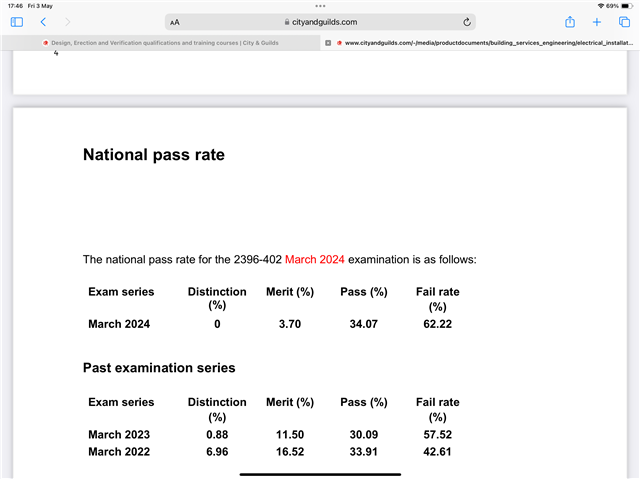
The Level 4 Design Erection and Verification results were abysmal. 170 candidates sat the exam and around 106 failed. I had eight candidates, all passed bar one. You can imagine how he is feeling. He is a very capable guy in a supervisory role for a company specialising in the installation of industrial control systems. He comes from a solid electrical installation background. He has just emailed me seeking feedback as to why he might have failed. Unfortunately I cannot do that as I don’t know the questions he was asked, they are a closely guarded secret in City and Guilds. The Chief Examiners Report is of little use as it does not reveal the questions posed in the exam. Its a little bit like a restaurant critic assessing a meal but not saying what was ordered!
I am an advocate of encouraging lads to go beyond the normal level three, it’s good for them and for our industry. However, if City and Guilds are not prepared to provide example questions with exemplar answers, how in heavens name can tutors provide well-founded feedback to encourage lads to have another go!
